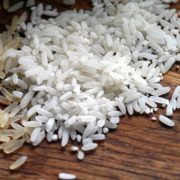The importation of rice into the Philippines will continue in accordance with the law, the country’s agriculture secretary clarified.
Agriculture Secretary William Dar on Thursday, November 21 said that instead of suspending the importation, the government will tighten food safety measures to control the entry of cheap grain that is affecting the incomes of Filipino farmers.
President Rodrigo Duterte declared a rice importation ban on Wednesday in response to local farmers complaining of falling palay (rice prior to husking) prices as a result of the Rice Tariffication law.
However, suspending imports is against the law as doing so would mean imposing quantitative restrictions on the commodity.
Dar, Executive Secretary Salvador Medialdea, and Finance Secretary Carlos Dominguez III met with Duterte on Wednesday night to clarify his pronouncements, coming up with the solution of stricter measures in the issuance of sanitary and phytosanitary import clearance (SPSIC).
“The president is really looking at all angles and this is the directive. We will be strict in giving SPSIC, especially during the main harvest season,” Dar said, adding that “But we will not stop it, we are implementing the law properly.”
The Department of Agriculture will conduct pre-inspection at the point of origin of imported rice stock to ensure rice quality and safety for consumers and at the same time protect the spread of crop pests and diseases, Dar explained.
The Philippines often buys rice from neighboring Southeast Asian countries like Vietnam and Thailand. This year, it imported 2.9 million tons of rice — more than double the annual average in recent years and making the country the world’s top buyer.
“He (Duterte) said that the Rice Tariffication Law will be pursued to provide affordable and quality rice to all Filipinos,” Dar said.
As a result of increased domestic supply, farmgate rice prices have plummeted more than 20 percent in the last 9 months.
To ensure Filipino farmers are able to sell and make a profit from their produce, Dar said Duterte has issued an order to the National Food Authority (NFA) to increase the country’s emergency rice buffer stock from 15 to 30 days by buying more palay from farmers.





